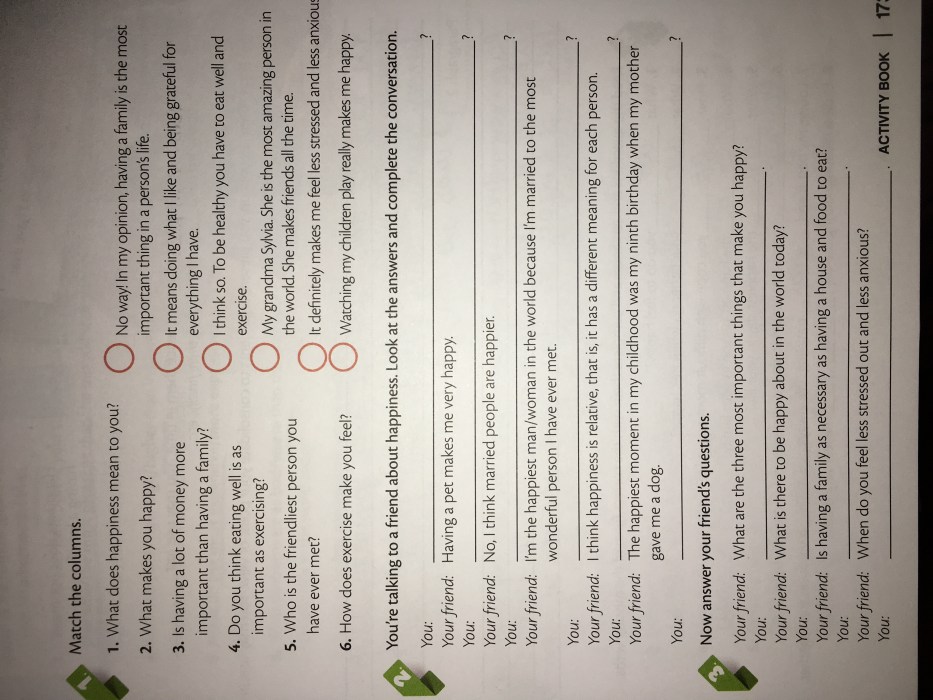Embark on an enlightening journey through CNA Progression 2 Unit 5, where we delve into the realm of certified nursing assistants. This unit equips aspiring CNAs with a comprehensive understanding of the skills, knowledge, and responsibilities that define their vital role in healthcare.
As we navigate through the intricacies of this unit, we will explore clinical applications, ethical considerations, assessment techniques, nutrition management, medication administration, wound care, and end-of-life care. Each topic is meticulously presented to ensure a thorough understanding of the essential aspects of CNA practice.
CNA Progression Unit 5 Overview
CNA Progression Unit 5 focuses on enhancing the skills and knowledge of Certified Nursing Assistants (CNAs) in providing care to individuals with complex medical conditions. This unit covers advanced techniques, assessment skills, and specialized interventions required for working in various healthcare settings.
The target audience for this unit includes CNAs who are seeking to advance their careers by expanding their knowledge and skills. Prerequisites for the unit may vary depending on the healthcare facility or educational institution offering the program.
Skills and Knowledge Covered in Unit 5

Unit 5 delves into crucial skills and knowledge that empower CNAs to provide comprehensive care to their patients. These skills range from understanding patient rights and responsibilities to effectively communicating with patients and their families. By mastering these competencies, CNAs can ensure the well-being and dignity of those under their care.
Understanding Patient Rights and Responsibilities, Cna progression 2 unit 5
Understanding patient rights and responsibilities is paramount for CNAs. It ensures that patients’ autonomy and dignity are respected throughout their care journey. CNAs must be well-versed in patients’ rights to informed consent, privacy, confidentiality, and refusal of treatment. They must also be aware of their own responsibilities in upholding these rights and advocating for patients’ best interests.
Communication and Interpersonal Skills
Effective communication is vital for CNAs to build rapport with patients and their families. They must be able to listen actively, ask open-ended questions, and convey information clearly and empathetically. Interpersonal skills, such as empathy, compassion, and cultural sensitivity, enable CNAs to connect with patients on a personal level, fostering trust and understanding.
Infection Control and Safety
Infection control and safety are essential for protecting patients and healthcare professionals. CNAs play a crucial role in preventing the spread of infections by adhering to proper hand hygiene, using personal protective equipment, and maintaining a clean and sanitary environment.
They must also be aware of the signs and symptoms of infections and know how to respond appropriately.
Emergency Preparedness
CNAs must be prepared to respond to emergencies promptly and effectively. They should be trained in basic first aid, CPR, and the use of emergency equipment. By having a clear understanding of emergency procedures and protocols, CNAs can help ensure the safety and well-being of patients during critical situations.
Delegation and Supervision
Delegation and supervision are essential skills for CNAs working in a team environment. They must be able to effectively delegate tasks to other healthcare professionals while ensuring that the quality of care is maintained. CNAs must also be able to supervise and provide guidance to other staff members, fostering a positive and collaborative work environment.
Clinical Applications and Procedures
Unit 5 covers a range of clinical applications and procedures essential for Certified Nursing Assistants (CNAs). These procedures are designed to provide safe and effective care to patients in various healthcare settings.
Vital Signs Monitoring
Vital signs monitoring is a crucial procedure that involves measuring and recording a patient’s temperature, pulse, respiration, and blood pressure. CNAs are responsible for obtaining accurate vital signs and recognizing any abnormalities that may indicate underlying health issues. This information is essential for assessing a patient’s overall health status and monitoring their response to treatment.
Wound Care
Wound care is another important procedure that CNAs perform. They assist in dressing and cleaning wounds, monitoring their progress, and preventing infection. CNAs must be skilled in assessing wounds, identifying signs of infection, and providing appropriate wound care interventions.
Medication Administration
Medication administration is a critical task that CNAs perform under the supervision of a registered nurse. They are responsible for administering medications to patients according to the doctor’s orders, ensuring that the correct medication is given to the right patient at the right time.
CNAs must be knowledgeable about medication names, dosages, and side effects.
Patient Transfer and Positioning
Patient transfer and positioning are essential procedures that CNAs perform to ensure patient safety and comfort. They assist patients with moving from one location to another, such as from bed to wheelchair or from wheelchair to toilet. CNAs must use proper body mechanics and equipment to prevent injury to both the patient and themselves.
Catheterization
Catheterization is a procedure that involves inserting a tube into the bladder to drain urine. CNAs assist with catheterization under the supervision of a nurse. They must be familiar with the procedure and its potential complications, and they must ensure that the patient is comfortable and informed throughout the process.
Communication and Documentation
Effective communication and documentation are essential for providing quality patient care in Unit 5. Clear communication ensures that patients, families, and healthcare professionals understand each other and work together to achieve the best possible outcomes. Accurate documentation provides a record of the patient’s condition, care, and progress, which is crucial for continuity of care and legal purposes.
Communicating with Patients and Families
- Use clear and concise language that is easy for patients and families to understand.
- Be respectful and empathetic, and listen attentively to their concerns.
- Provide information in a way that is culturally sensitive and tailored to the patient’s individual needs.
- Use active listening skills to ensure that you understand the patient’s perspective.
Communicating with Other Healthcare Professionals
- Use professional language and terminology when communicating with other healthcare professionals.
- Be clear and concise, and provide all relevant information.
- Document all communications, including phone calls, emails, and face-to-face conversations.
- Be respectful and collaborative, and work together to provide the best possible care for the patient.
Types of Documentation Required in Unit 5
- Patient care plans
- Progress notes
- Medication administration records
- Vital signs
- Intake and output records
Completing Documentation Accurately
- Use a standardized format for all documentation.
- Be clear and concise, and use specific language.
- Document all observations and interventions, including the date, time, and your signature.
- Review your documentation regularly for accuracy and completeness.
Ethical and Legal Considerations
Ethical and legal considerations are an integral part of nursing practice. CNAs play a vital role in upholding patient rights and maintaining confidentiality. They must be familiar with the ethical and legal principles that guide their practice. This unit covers various ethical and legal considerations, including patient rights, confidentiality, informed consent, and end-of-life care.
CNA Progression 2 Unit 5 delves into various nursing concepts. One notable example is the discussion of nakedness and its significance in healthcare settings. In the novel Lord of the Flies Naked , the author explores the psychological effects of nudity on individuals and groups.
This provides a thought-provoking perspective that can enrich our understanding of the role of nakedness in nursing practice and patient care within CNA Progression 2 Unit 5.
Role of CNAs in Upholding Patient Rights
CNAs have a responsibility to protect and uphold the rights of their patients. These rights include the right to:
- Receive quality care
- Make informed decisions about their care
- Be treated with respect and dignity
- Have their privacy protected
CNAs must be aware of these rights and take steps to ensure that they are respected.
Assessment and Care Planning
Assessment and care planning are crucial aspects of nursing care covered in Unit 5. CNAs play a vital role in gathering data, assessing patient needs, and developing individualized care plans.
Data Gathering and Patient Assessment
CNAs collect patient data through various methods, including:
Patient interviews
Engaging in conversations to obtain information about the patient’s medical history, current symptoms, and concerns.
Physical examinations
Observing and assessing the patient’s physical condition, including vital signs, skin integrity, and range of motion.
Functional assessments
Evaluating the patient’s ability to perform daily activities, such as bathing, dressing, and eating.By gathering this data, CNAs can accurately assess the patient’s needs and develop appropriate care plans.
Individualized Care Plans
Care plans are tailored to meet the specific needs of each patient. They Artikel:
Goals
Establishing specific outcomes that the patient and healthcare team aim to achieve.
Interventions
Identifying specific actions that the CNA will perform to assist the patient in reaching their goals.
Monitoring and evaluation
Regularly assessing the patient’s progress and making adjustments to the care plan as needed.Individualized care plans ensure that patients receive the necessary support and interventions to improve their health and well-being. They guide CNAs in providing holistic and compassionate care.
Nutrition and Hydration
Nutrition and hydration are essential for maintaining a healthy body and mind. Patients in healthcare facilities often require assistance with meeting their nutritional and hydration needs. CNAs play a vital role in ensuring that patients receive the proper nourishment and fluids they need.
Role of CNAs in Nutrition and Hydration
CNAs assist with meal preparation, feeding, and hydration in various ways. They may help patients select appropriate meals from menus, assist with eating and drinking, and monitor fluid intake. CNAs also observe and report any changes in patient nutritional status, such as changes in appetite, weight, or hydration levels.
Medication Administration

Medication administration is a crucial aspect of nursing care, and CNAs play a vital role in ensuring safe and accurate medication administration. Unit 5 of the CNA Progression program covers the principles, routes, and responsibilities of medication administration, emphasizing patient safety and accurate medication administration.
Principles of Medication Administration
The principles of medication administration include:
- The five rights of medication administration: right patient, right medication, right dose, right route, right time.
- Following the six rights of medication administration: right documentation, right storage, right assessment.
- Understanding the different routes of medication administration and the responsibilities of CNAs in each route.
- Ensuring patient safety and accurate medication administration.
Routes of Medication Administration
The different routes of medication administration include:
- Oral:Medications are taken by mouth and absorbed through the digestive system.
- Topical:Medications are applied to the skin or mucous membranes.
- Inhalation:Medications are inhaled through the lungs.
- Injection:Medications are injected into the body.
- Ophthalmic:Medications are applied to the eyes.
- Otic:Medications are applied to the ears.
CNAs are responsible for assisting with oral, topical, and inhalation medications. They must follow the five rights of medication administration and ensure patient safety.
Wound Care and Management

Wound care is an essential aspect of nursing care, and CNAs play a crucial role in ensuring proper wound assessment, dressing changes, and infection prevention. This section will delve into the different types of wounds, principles of wound care, and the responsibilities of CNAs in wound management.
Types of Wounds
- Abrasions:Superficial wounds caused by friction, resulting in the loss of the top layer of skin.
- Lacerations:Wounds caused by sharp objects, resulting in clean, linear cuts.
- Puncture Wounds:Wounds caused by sharp, pointed objects, resulting in deep, narrow wounds.
- Incisions:Wounds created during surgical procedures.
- Pressure Ulcers:Wounds caused by prolonged pressure on the skin, resulting in damage to underlying tissues.
- Burns:Wounds caused by heat, chemicals, or electricity.
Principles of Wound Care
The principles of wound care aim to promote healing and prevent infection. They include:
- Debridement:Removing dead or damaged tissue from the wound bed.
- Irrigation:Cleaning the wound with sterile saline or other solutions.
- Dressing:Covering the wound to protect it from further injury and infection.
- Infection Prevention:Using sterile techniques and antibiotics as necessary.
- Monitoring:Regularly assessing the wound for signs of infection or healing.
Role of CNAs in Wound Care
CNAs play a vital role in wound care by:
- Assessing Wounds:Monitoring the wound for size, color, drainage, and signs of infection.
- Dressing Changes:Performing routine dressing changes to keep the wound clean and protected.
- Infection Prevention:Using sterile techniques and reporting any signs of infection to the nurse.
- Monitoring Healing Progress:Observing the wound for signs of healing, such as granulation tissue formation and epithelialization.
Importance of Monitoring and Reporting Wound Healing Progress
Monitoring and reporting wound healing progress is essential for:
- Assessing the Effectiveness of Treatment:Determining if the wound is healing as expected.
- Preventing Complications:Identifying signs of infection or other complications early on.
- Adjusting Care Plan:Modifying the wound care plan based on the wound’s progress.
- Patient Education:Providing patients with information about their wound and its healing process.
End-of-Life Care

End-of-life care is a specialized field of healthcare that focuses on providing comfort, support, and dignity to patients and their families during the final stages of life.
As a CNA, you play a vital role in providing end-of-life care. Your responsibilities include providing physical, emotional, and spiritual support to patients and their loved ones. You may also assist with medical procedures, such as pain management and wound care.
Respecting Patient Wishes
One of the most important aspects of end-of-life care is respecting the wishes of the patient. This includes respecting their decisions about medical treatment, as well as their preferences for how they want to spend their final days.
It is important to listen to the patient’s wishes and to advocate for their rights. You should also provide support to the patient’s family and friends, who may be struggling to cope with the patient’s illness.
Providing Dignified Care
Providing dignified care is another important aspect of end-of-life care. This means treating the patient with respect and compassion, and ensuring that their physical and emotional needs are met.
You can provide dignified care by:
- Maintaining the patient’s privacy
- Keeping the patient clean and comfortable
- Listening to the patient’s concerns
- Providing emotional support to the patient and their family
Question Bank: Cna Progression 2 Unit 5
What is the purpose of CNA Progression 2 Unit 5?
CNA Progression 2 Unit 5 aims to provide aspiring certified nursing assistants with the essential knowledge, skills, and ethical principles required to excel in their role.
What topics are covered in CNA Progression 2 Unit 5?
This unit covers a wide range of topics, including clinical applications, ethical considerations, assessment techniques, nutrition management, medication administration, wound care, and end-of-life care.
Who is the target audience for CNA Progression 2 Unit 5?
This unit is designed for individuals who are pursuing or currently hold a certified nursing assistant certification.
What are the benefits of completing CNA Progression 2 Unit 5?
Completing this unit enhances the knowledge and skills of CNAs, enabling them to provide high-quality patient care and advance their careers in the healthcare field.